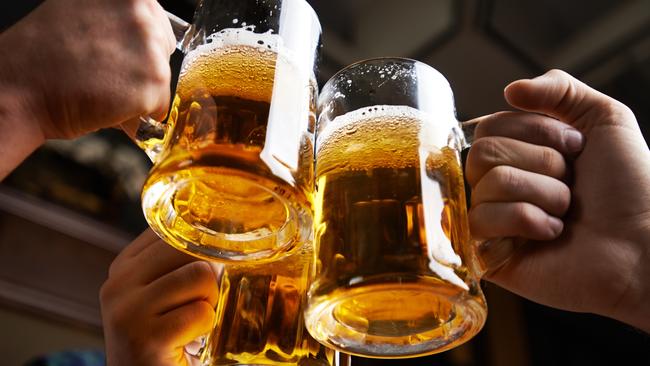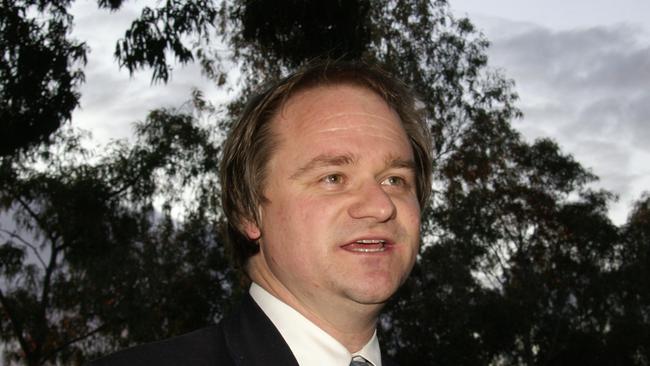Boozing parents lead kids into trouble
BOOZE-related hospital admissions are soaring, raising fears that heavy-drinking parents are setting up their children to follow their example into alcohol-related health problems.
VIC News
Don't miss out on the headlines from VIC News. Followed categories will be added to My News.
EXCESSIVE middle-aged drinkers risk setting a similar path for their kids as booze-related hospital admissions soar among older people.
Construction and hospitality industry workers have been identified as among the heaviest drinkers.
INCREASING THE COST OF ALCOHOL MAY REDUCE HARM: VICHEALTH PROPOSES
YOUNG PEOPLE AREN’T DRINKING AS MUCH AS WE THINK: YOURGOV GALAXY POLL FINDS
EENS’ ALCOHOL INTAKE PREDICTS TROUBLE IN ADULTHOOD

Most middle-aged people are drinking at home, but heavy sessions at sports bars also pose a risk.
New VicHealth analysis shows alcohol-related hospital admissions among people aged 40-65 increased in all but three of Melbourne’s 31 council areas between 2011 and 2015.
VicHealth principal program officer Maya Rivis told the Sunday Herald Sun middle-aged parents who drank heavily could end up passing bad habits on to their kids.
“Young people model their parents’ behaviours,’’ Ms Rivis said.
“There is evidence to say if the parents drink a lot, then a young person is more likely to take up drinking.”
Stonnington, taking in South Yarra and Prahran, posted the highest rate of alcohol-related hospital admissions in 2014-15, with 200 residents treated for every 10,000 people.
Port Phillip, Greater Dandenong, Bayside, Frankston, Yarra, Knox and the Mornington Peninsula were also problem areas.
Manningham, Glen Eira and Yarra Ranges had the biggest percentage increase in hospitalisations, with rates soaring more than 20 per cent.
Ms Rivis said VicHealth was looking at why middle-aged people working in industries such as construction and hospitality drank more. Rising numbers of middle-aged people, particularly men, were boozing at home and at sports bars, clubs and pubs.
“Some of the theory is that at that age they’ve been big drinkers when they were younger and it’s just carried on through,’’ Ms Rivis said.

“Alcohol is everywhere, it’s cheap and it’s available. Before you know it you’ve had too much and hurt yourself or doing it so often you’re getting an alcohol-related chronic disease.”
National Drug Strategy Household Survey data shows high-risk drinking — classed as consuming 11 or more beverages in one session — is rising among people aged 40-69 compared. Conversely, there are sharp declines among people aged 18-24.
Uniting senior social justice advocate Mark Zirnsak said greater controls on bottle shop numbers was needed to curb access to alcohol, which was also linked to assaults and family violence.


